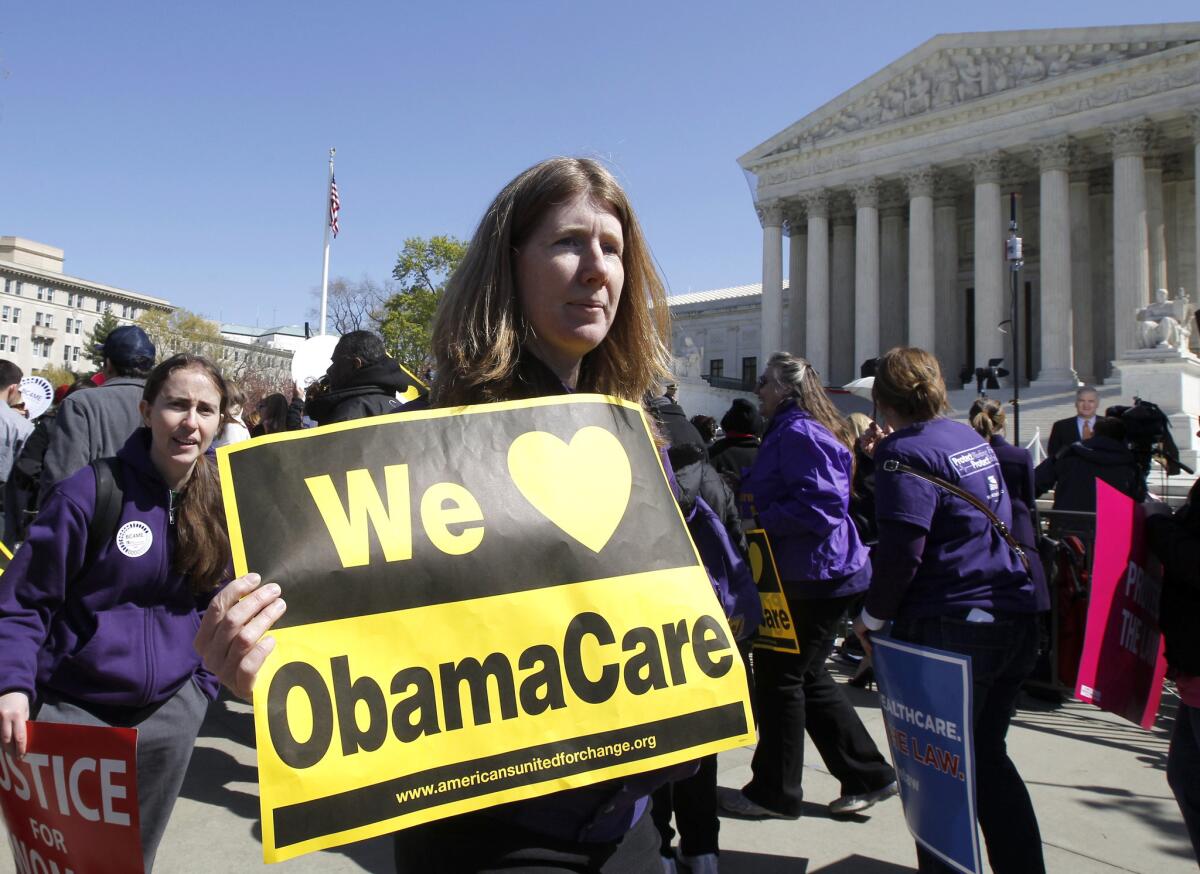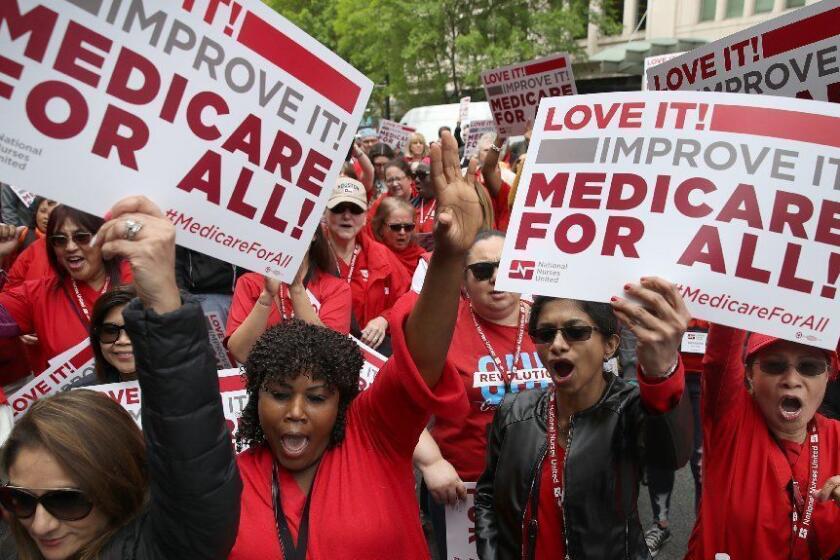Column: As Supreme Court considers its fate, Obamacare’s popularity is higher than ever

- Share via
To paraphrase Joni Mitchell, you often don’t know what you’ve got till it’s threatened. That may partially explain a new finding that the Affordable Care Act is more popular than ever.
The result comes from the latest monthly tracking poll on healthcare issues by the Kaiser Family Foundation, taken in mid-February and released Friday.
The poll found that 55% of the public now has a favorable view of the ACA, its highest reading since the first poll in April 2010. The favorable rating is up two points from the previous poll in January, while the unfavorable rating remained the same at 37%.
The foundation’s release of the poll comes the same day that the Supreme Court may decide whether to hear the latest lawsuit challenging the ACA’s constitutionality. That’s the lawsuit brought by Texas and 17 other red states.
Their argument, which is widely derided by legal authorities, is that by eliminating any penalty for violating the ACA’s individual mandate, the 2017 tax cut bill invalidated the entire law.
Their position, which is opposed in court by a coalition of blue states including California, won favor from a conservative federal judge in Texas. But a federal appellate panel stopped short of declaring the entire law unconstitutional in December, ordering the case sent back to the same judge for further consideration. The Supreme Court may decide Friday to take up the case directly.
KFF says the uptick in the ACA’s popularity reflects strong continued support by Democrats, with “85% now expressing favorable views compared to 53% of independents and 18% of Republicans.”
Most Republicans — 77% — still regard the ACA unfavorably, the poll found. However, it also found that repealing the ACA has fallen sharply as a goal of Republican voters since March 2016, before the last presidential election. That month, opposition to or repeal of the ACA was the most important healthcare-related issue for GOP voters, with 29% ranking it first.
A federal appeals court is both too activist and too feeble with Obamacare ruling
By October 2018 repeal had become those voters’ secondary concern, with a reading of 18%, behind “health care costs” at 21%. In the latest poll, only 3% of Republicans ranked ACA repeal as their top concern. Ranking higher were reining in healthcare costs (24%), opposition to single-payer or “Medicare for all” — both Democratic goals (19%) — and increasing access to healthcare (15%).
The poll, of 1,207 randomly selected adults reached by telephone, underscores how important healthcare will be in the 2020 presidential race.
More than a third of Democratic voters listed healthcare as their most important concern in voting this year, though it paled in comparison with the top issue, defeating President Trump (59%). Healthcare was cited as the most important issue in the election by 30% of independent voters and 28% of “swing voters,” defined as those who have not yet made up their minds.
KFF found that a national Medicare-for-all plan or a “public option” — a government-administered plan that would compete with private insurers — have majority support among voters overall. The public option outpolls Medicare for all when voters are asked to choose one or the other; half the voters favor Medicare for all, but two-thirds favor the public option.
‘Medicare for all’ has been a big feature of the presidential campaign so far. Don’t expect that to change in 2020.
This could be partially the effect of branding, as the particulars of Medicare for all are still murky, but is seen by many voters as a program that would entirely replace private insurance even if they preferred private plans. “Public option” suggests greater choice.
The public’s view of the ACA has wavered since its enactment in 2010, with the height of its unpopularity occurring in early 2014, in the wake of the botched rollout of its Healthcare.org enrollment website the previous October. By July 2017, the law was viewed unfavorably by a 53%-37% margin.
The tide turned decisively in April 2017. Since then the law has consistently notched higher favorable than unfavorable ratings. That could signify both that more Americans were personally benefiting from the law, and that they were more aware of the threat to its survival by a concerted attack on its provisions by Republicans and the absence of any alternative Republican proposals. Of particular concern to many Americans would be the loss of the ACA’s protections for people with preexisting medical conditions if the law is repealed or invalidated.
More to Read
Inside the business of entertainment
The Wide Shot brings you news, analysis and insights on everything from streaming wars to production — and what it all means for the future.
You may occasionally receive promotional content from the Los Angeles Times.












